Tsar plan to tackle 'tacky, run down' resorts
- Published

The British Hospitality Association wants to see the creation of coastal action groups and the appointment of a "Seaside Tsar" to oversee measures outlined in its report
A "Seaside Tsar" should be appointed to help regenerate Britain's forgotten seaside towns, according to the British Hospitality Association (BHA).
A report called Creating Coastal Powerhouses, external found people living in seaside towns are more likely to be poorly educated and unemployed.
They are also more likely to be claiming benefits, it said.
A separate survey conducted by the owners of Butlins found 65% of people see the British seaside as "run down".
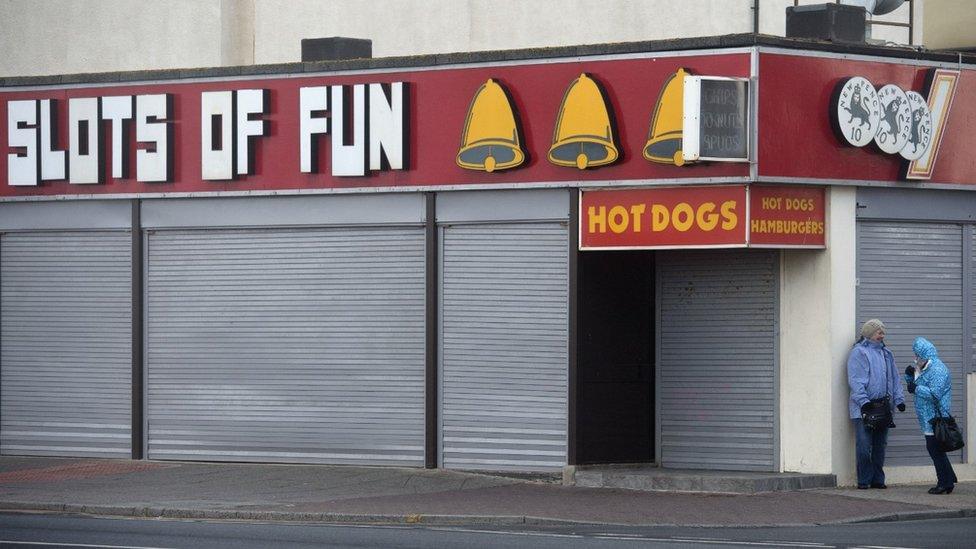
The report is also calling for action to tackle social issues and housing problems, which it says has a negative impact on visitors
According to the Department for Communities and Local Government 2015 Index of Multiple Deprivation, nine out of the 10 most deprived neighbourhoods in the UK are seaside communities, a list topped by Blackpool.
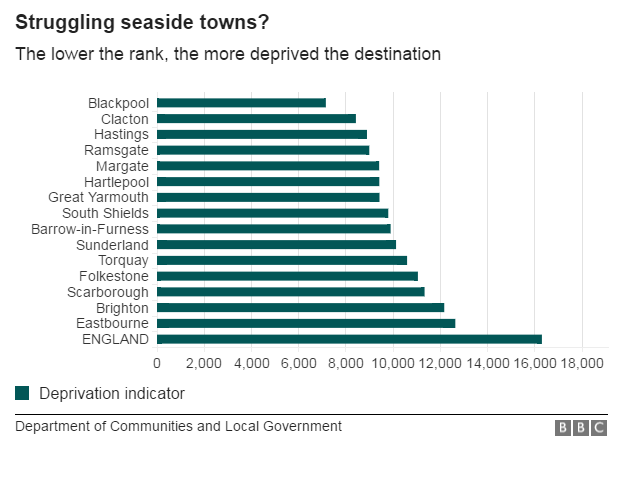
The BHA said urgent investment in both people and infrastructure is needed.
The report highlights a number of issues facing many resorts, including the collapse of industries such as shipbuilding and fishing, the demise of the traditional annual holiday by the seaside, growing drug use, and cutbacks in budgets affecting maintenance of public places, street cleaning and tourism promotion.
It has proposed a range of measures to tackle the decline, including offering incentives to get business investment to create jobs and growth.
It is also calling for improvements to broadband, road and rail access, and action to protect against the threat of rising sea levels.
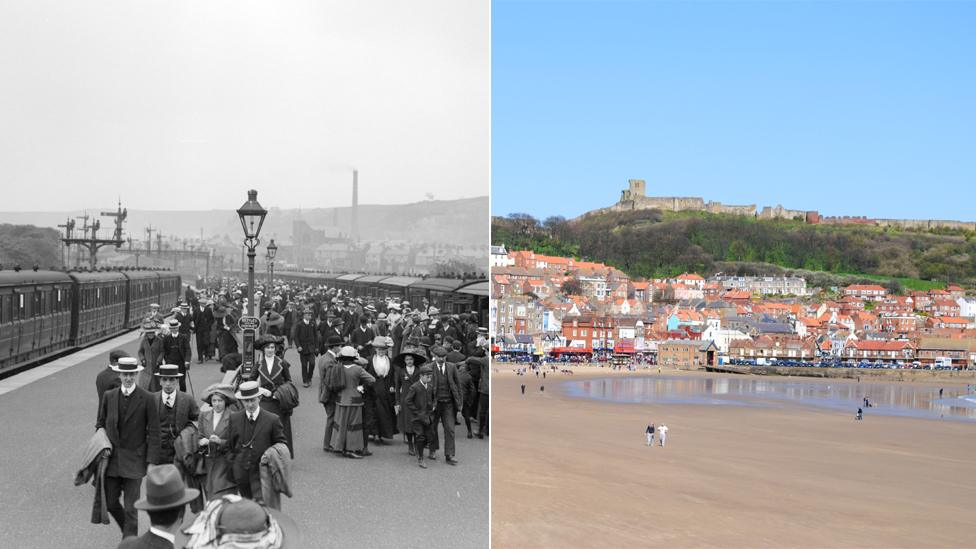
Many resorts, including Scarborough, have seen a decline in visitors
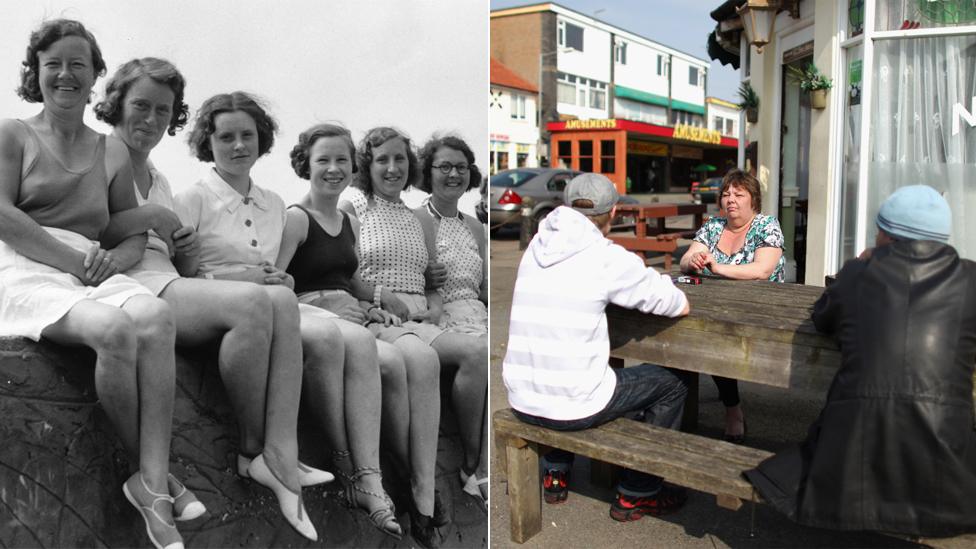
Other resorts, like the once fashionable Jaywick, near Clacton, Essex, are classed as deprived and in need of investment
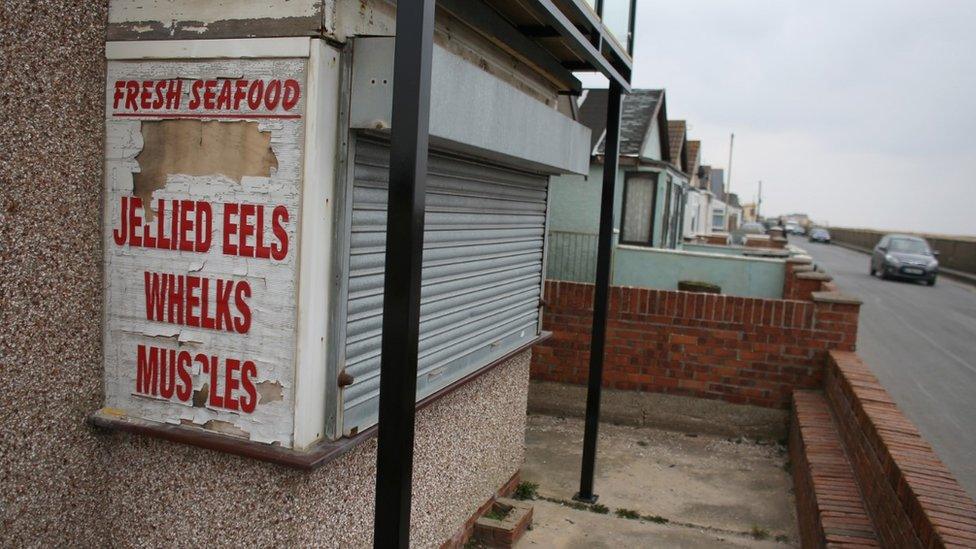
Jaywick was once popular with visitors from London
The BHA cites the successful regeneration of Folkestone in Kent and the Jurassic Coast in Dorset and east Devon as examples of how the British seaside can recover.
It is calling for the creation of Coastal Enterprise Zones to encourage investment.
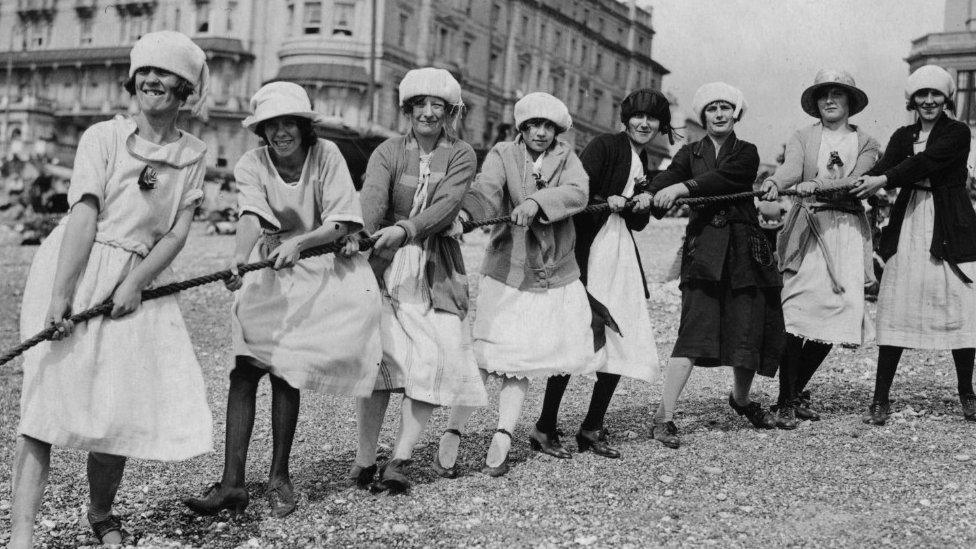
The BHA said it wanted to "put the smile back into the seaside"
Ufi Ibrahim, chief executive of the BHA, said: "Our members… recognise the problems facing many coastal communities, but we also know there are fantastic opportunities to... help revive the Great British seaside holiday."
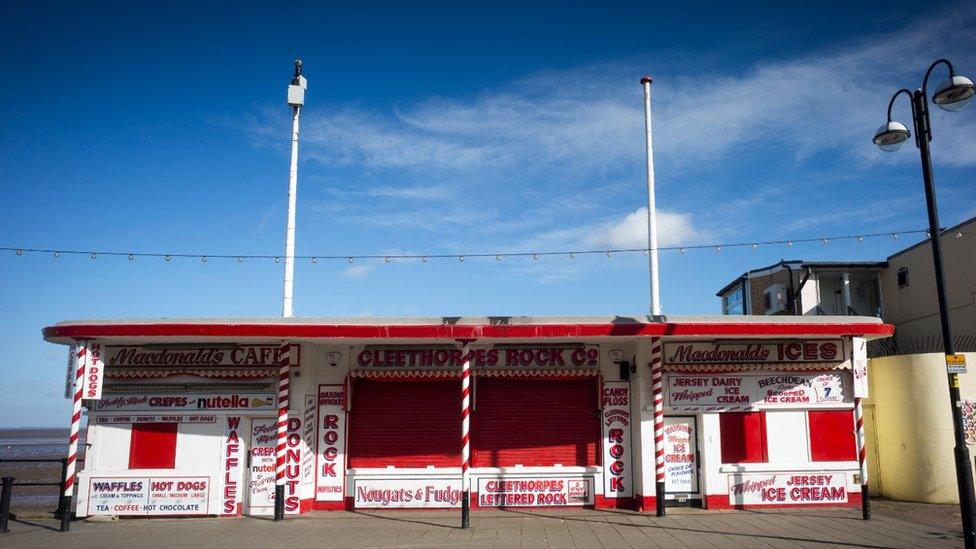
Many resorts, including Cleethorpes, rely on tourism for the local economy
Martin Vickers, MP for Cleethorpes, said: "Cleethorpes has been a traditional UK seaside resort since 1820 and the seaside is the lifeline of Cleethorpes' economy... but more could be done to support the local economy."
He welcomed the suggestions in the report.
'Pit of everlasting squalor'
About half of those questioned on behalf of holiday firm Butlins said they considered the seaside "a bit downmarket", with about a third saying they had not been since childhood.
About 40% said the British seaside was "tacky".
Dermot King, managing director of Butlins, recognised an "urgent need for a new approach to regenerating our coastal communities", with investment looking to the future.
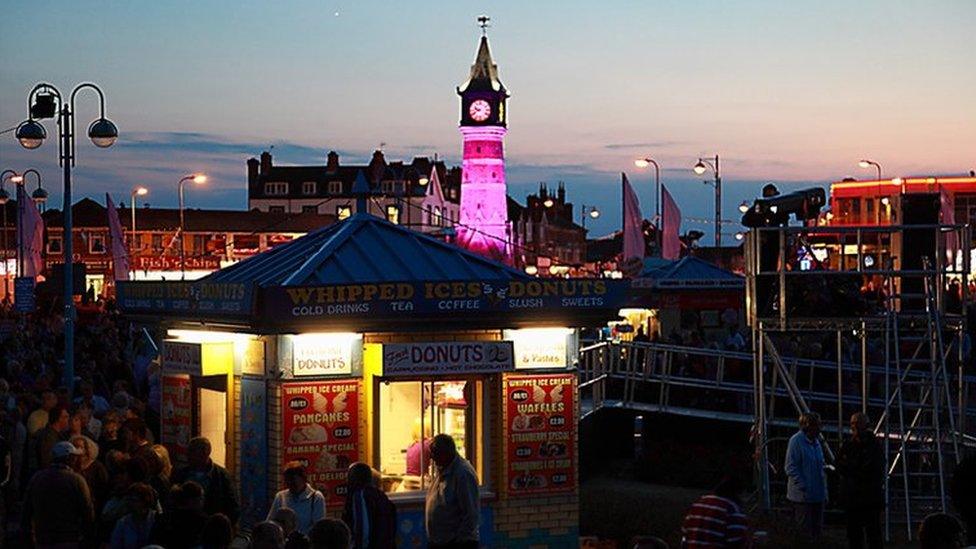
In 2011, the Lincolnshire resort of Skegness came under fire from the Lonely Planet guide to Great Britain. It described the resort as "good family fun if you immerse yourself in the whole tacky spectacle"
However, the Mayor of Skegness, Dick Edginton, questions whether British seaside resorts really are "languishing in a pit of everlasting squalor".
He acknowledged there were issues affecting places like Skegness, but added: "If this town was in such a poor state, as this report seems to suggest, then people wouldn't come here in ever increasing numbers."
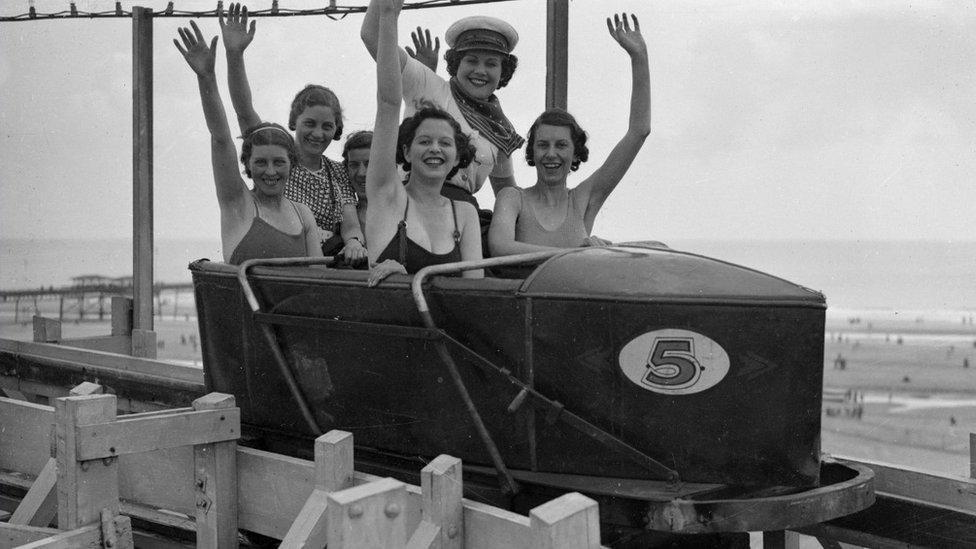
Butlins, which opened its first holiday camp in Skegness on 11 April 1936 with the idea of providing a place where families could spend time together, said it welcomed calls for a seaside tsar